The Uttar Pradesh Public Service Commission (UPPSC) is currently conducting the application process for the UP LT Grade Agriculture Teacher Recruitment, which will continue until 28 August. Candidates who have applied or are planning to apply must be familiar with the detailed UP LT Grade Agriculture Teacher Syllabus 2025 to begin their preparation promptly. Understanding the syllabus helps in creating a study plan and helps in identifying important focus topics, which leads to better preparation and improved results.
UP LT Grade Agriculture Teacher Syllabus 2025
The UP LT Grade Agriculture Teacher Syllabus 2025 includes a total of 150 questions divided into two main sections: General Studies and Agriculture. The General Studies section has 30 questions, while the Agriculture section has 120 questions, which means it carries more weight and needs more focus during preparation. Since the selection is based only on the written exam, it becomes very important for candidates to score well.
UP LT Grade Agriculture Teacher Syllabus: Highlights
The UP LT Grade Agriculture Teacher recruitment is purely based on performance in the written exam, which is conducted in two stages – Prelims and Mains. Candidates must clear both stages to be considered for final selection. A brief overview of the UPPSC LT Grade Agriculture Teacher Syllabus 2025 has been provided in the table below:
| Particulars | Details |
| Organization | Uttar Pradesh Public Service Commission (UPPSC) |
| Post | UP LT Grade Agriculture Teacher |
| Vacancy | 22 |
| Number of Questions | 150 |
| Total Marks | 150 |
| Duration | 2 hours |
| Syllabus | General Studies and Agriculture |
| Selection Process | Written Exam and Document Verification |
| Official Website | uppsc.up.nic.in |
UP LT Grade Agriculture Teacher Syllabus: General Studies
For this section, the notification PDF specially mentions that the candidates are expected to have general awareness about the topics with special reference to UP. The GS syllabus is as follows:
- History of India and Indian National Movement: In the History of India, emphasis should be on a broad understanding of social, economic, and political aspects of Indian history. In the Indian National Movement, the candidates are expected to have a synoptic view of the freedom movement, the growth of nationalism and the attainment of Independence.
- Indian and World Geography: Physical, Social, Economic Geography of India and the World:- Questions on the Geography of India will relate to the Physical, Social, and Economic Geography of India. In World Geography, only a general understanding of the subject will be expected.
- Indian Polity and Governance, Constitution, Political system, Panchayati Raj & Public Policy, rights issues, etc: Indian polity and Governance questions will test knowledge of the country’s Constitution, political system, including Panchayati Raj and Community Development.
- Indian Economy and Social Development: The candidates will be tested with respect to problems and relationships between population, Environment, Urbanisation, broad features of economic policy in India, and Indian Culture.
- Current Events of National and International Importance: This will also include questions on Games and sports.
- Indian Agriculture: The candidates will be expected to have a general understanding of agriculture in India, agricultural produce, and its marketing.
- General Science: Questions On General Science will cover general appreciation and understanding of science, including matters of everyday observation and special study of any scientific discipline. This will also include questions on the role of science and technology in the development of India.
- Elementary Mathematics up to class 10th level: Arithmetic, Algebra and Geometry.
UP LT Grade Agriculture Teacher Syllabus: Agriculture
The Agriculture section is the core part of the UP LT Grade Teacher Exam, carrying 120 out of 150 questions. Candidates must be well-versed in various topics, including agronomy, soil science, horticulture, irrigation, animal husbandry, and agricultural schemes. Below is the complete topic-wise breakdown of the syllabus:
Agronomy and Crop Science
- Definition, concept, scope and development of Agronomy
- Climate-based classification of crops
- Environmental factors affecting crop production
- Weather forecasting
- Scientific cultivation of important cereals, pulses, oilseeds, and fodder
- Fibre and cash crops
Horticulture and Preservation
- Concept of horticulture, its importance and scope
- Orcharding and kitchen gardening
- Scientific cultivation of major fruits and vegetable crops of U.P.
- Principles and methods of fruit and vegetable preservation
- Causes of the spoilage of fruits and vegetable products
Soil Science and Nutrition
- Definition of soil
- Soil formation and development
- Physical, chemical, and biological properties of soil
- Types of soils in U.P.
- Essential plant nutrients and their deficiency symptoms
- Manures, fertilisers and biofertilizers
- Problem soils and their reclamation
- Soil erosion: causes and control
- Soil testing
Plant Physiology and Seed Science
- Absorption of water and plant nutrients
- Elementary ideas of photosynthesis, respiration and transpiration
- Types of seeds and their quality
Irrigation and Drainage
- Sources and methods of irrigation
- Quality of irrigation water
- Moisture conservation techniques
- Types of drainage and their merits and demerits
Pest and Disease Management
- Classification of pesticides
- Control measures of various weeds, insects and diseases in cereal, fruit, and vegetable crops
Farm Machinery and Animal Husbandry
- Farm machinery and its maintenance
- Tillage, intercultural and spraying equipment
- Important breeds of cows, buffalo, sheep and goats
- Methods of animal breeding
- Principles of feeding and types of rations
- Symptoms, diagnosis and treatment of anthrax, foot and mouth disease, rinderpest, mastitis, and milk fever
Records and Agricultural Development
- Farm and revenue records of holdings
- Village and agricultural development programmes of the Central and State Governments
- Role of Agricultural Universities, Krishi Vigyan Kendras (KVKs), and other extension organisations
UP LT Grade Agriculture Teacher Prelims Exam Pattern 2025
The written exam will have 150 multiple-choice questions for a total of 150 marks. The exam time will be 2 hours. According to the marking scheme, each correct answer gives 1 mark, and 1/3 or 0.33 marks will be deducted for every wrong answer. Candidates can see the UP LT Grade Agriculture Teacher Exam Pattern 2025:
| UP LT Grade Agriculture Teacher Prelims Exam Pattern 2025 | |||
| Sections | No. of Questions | Total Marks | Duration |
| General Studies | 30 | 30 | 2 hours |
| Agriculture | 120 | 120 | |
| Total | 150 | 150 | 2 hours |
UP LT Grade Agriculture Teacher Mains Exam Pattern 2025
Candidates who qualify for the prelims will be eligible to appear for the mains examination. The UP LT Grade Agriculture Teacher Mains Exam 2025 will be descriptive in nature and will test the candidate’s subject knowledge and writing ability. The paper is divided into two sections – Section A and Section B, with short and long answer type questions respectively. The total marks for the exam are 200, and the duration is 3 hours.
| UP LT Grade Agriculture Teacher Mains Exam Pattern 2025 | |
|---|---|
| Particulars | Details |
| Paper | One Paper |
| Number of Questions | 20 (10 in Section A + 10 in Section B) |
| Total Marks | 200 (80 in Section A + 120 in Section B) |
| Duration | 3 hours |
| Section A Questions | 10 Short Answer Questions |
| Section A Word Limit | 125 words |
| Section A Marks per Question | 8 |
| Section B Questions | 10 Long Answer Questions |
| Section B Word Limit | 200 words |
| Section B: Marks per Question | 12 |
| Related Posts |
| UP LT Grade Teacher Eligibility Criteria |
| UP LT Grade Teacher Vacancy |

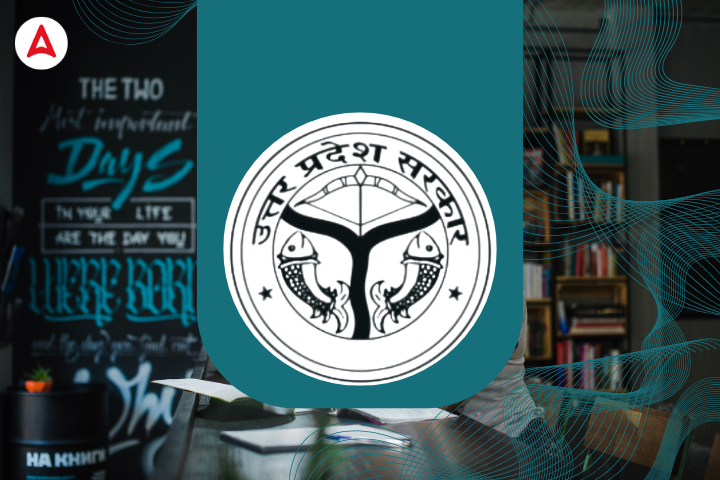
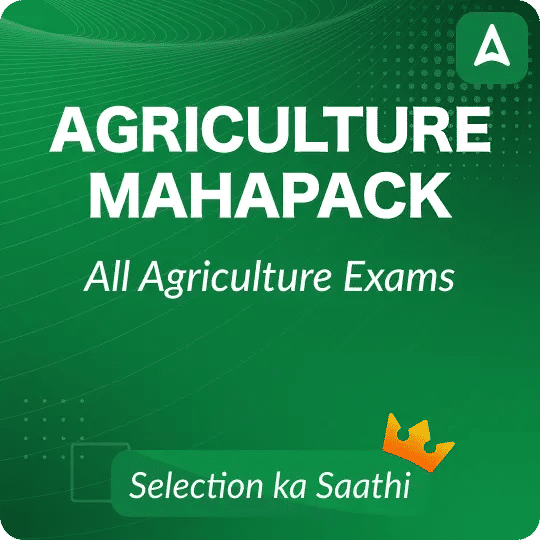

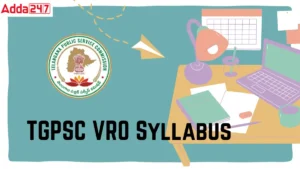 TSPSC VRO Syllabus and Exam Pattern 2026...
TSPSC VRO Syllabus and Exam Pattern 2026...
 Assam Police SI Syllabus And Exam Patter...
Assam Police SI Syllabus And Exam Patter...
 Haryana CET Syllabus 2026 And Exam Patte...
Haryana CET Syllabus 2026 And Exam Patte...
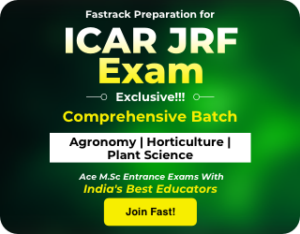

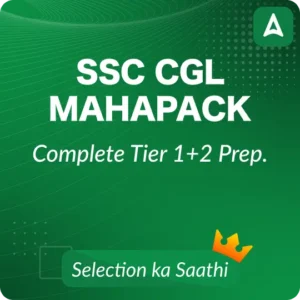
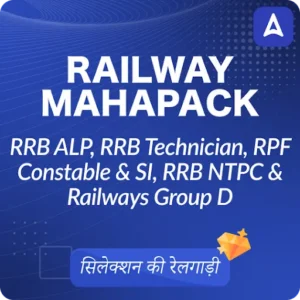
 Adda247 Job portal has complete information about all Sarkari Jobs and Naukri Alerts, its latest recruitment notifications, from all state and national level jobs and their updates.
Adda247 Job portal has complete information about all Sarkari Jobs and Naukri Alerts, its latest recruitment notifications, from all state and national level jobs and their updates.




